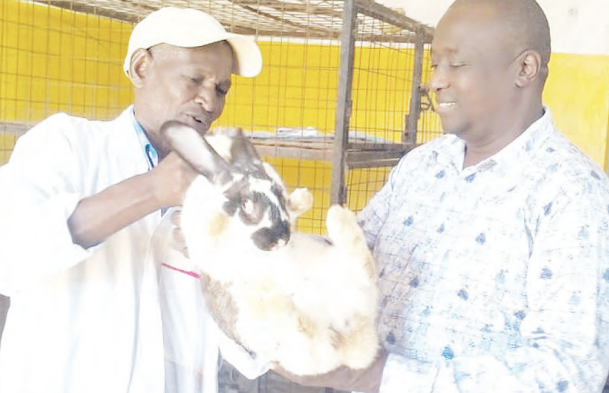
The Rabbits Breeders Association of Kenya (Raabak), a Thika- based company that slaughters and sells rabbit meat, says they are struggling to source for rabbits.
Speaking at the slaughterhouses in Thika town, Raabak chairman Peter Waiganjo said his slaughterhouse operates only once a week due to the shortage. Waiganjo added that they can only slaughter 200 rabbits every Wednesday, a fraction of what the market requires, which is exclusively distributed to select supermarkets and hotels.
“The demand for rabbit meat has soared over the years to a level that entrepreneurs in the industry can’t meet. Many people previously considered eating rabbit meat taboo, but due to its health benefits and delicious taste, many Kenyans have embraced the meat. We are struggling to get many of these animals to our slaughterhouses.”
He urged more farmers to venture into rabbit farming to bridge the supply gap, noting that religious and cultural taboos that once discouraged rabbit consumption have significantly diminished.
Elkana Gaitho, a successful rabbit farmer, shared how rearing rabbits have transformed his livelihood.
He is among the few who supply the animals to the Thika abattoirs.
Gaitho, with more than 10 years experience rearing rabbits, currently has over 100 of them, and says he cannot regret engaging in the venture.
“This venture has helped me provide for my family, put food on the table and even pay school fees for my children,” he said.
Besides selling the animals for meat, the farmers are also making money from rabbit urine, which is highly sought after as an organic foliar fertiliser and biopesticide.
Gaitho added that half a litre of rabbit urine sells for more than Sh500, making it an additional source of income for rabbit farmers. Research from the Kenya Agricultural and Livestock Research Organization indicates that there is a growing demand for rabbit meat, particularly in urban areas and upscale restaurants.
However, there is a challenge in meeting local supply needs. The report revealed that 84.8 per cent of rabbit production in Kenya comes from small-scale farmers.
There are an estimated 600,000 rabbits, and rabbit farming is gaining popularity, having previously been regarded as a hobby for young people. The research says the shrinking size of land holdings has led farmers to opt for livestock enterprises like rabbit production, which require less land and feed resources.
According to KALRO, the most common rabbit breeds in the country are New Zealand White ( 29 per cent), crossbreeds ( 24 per cent), Californian White ( 12 per cent), Chinchilla ( 11.5 per cent), Dutch (eight per cent), Flemish Giant ( 5.5 per cent) and French Lop (four per cent). Rabbits grow quickly and are typically ready for slaughter within four to five months.
Their gestation period is short, generally between 28 and 31 days, with does giving birth to two to eight kits every two months.
Recognising the growing potential of rabbit farming, Kiambu deputy speaker John Njiru, who is also the Hospital MCA in Thika, said the county would continue supporting rabbit farmers with inputs and extension advice.
He added that the county government is considering distributing free rabbits to interested farmers as an incentive to boost production.

